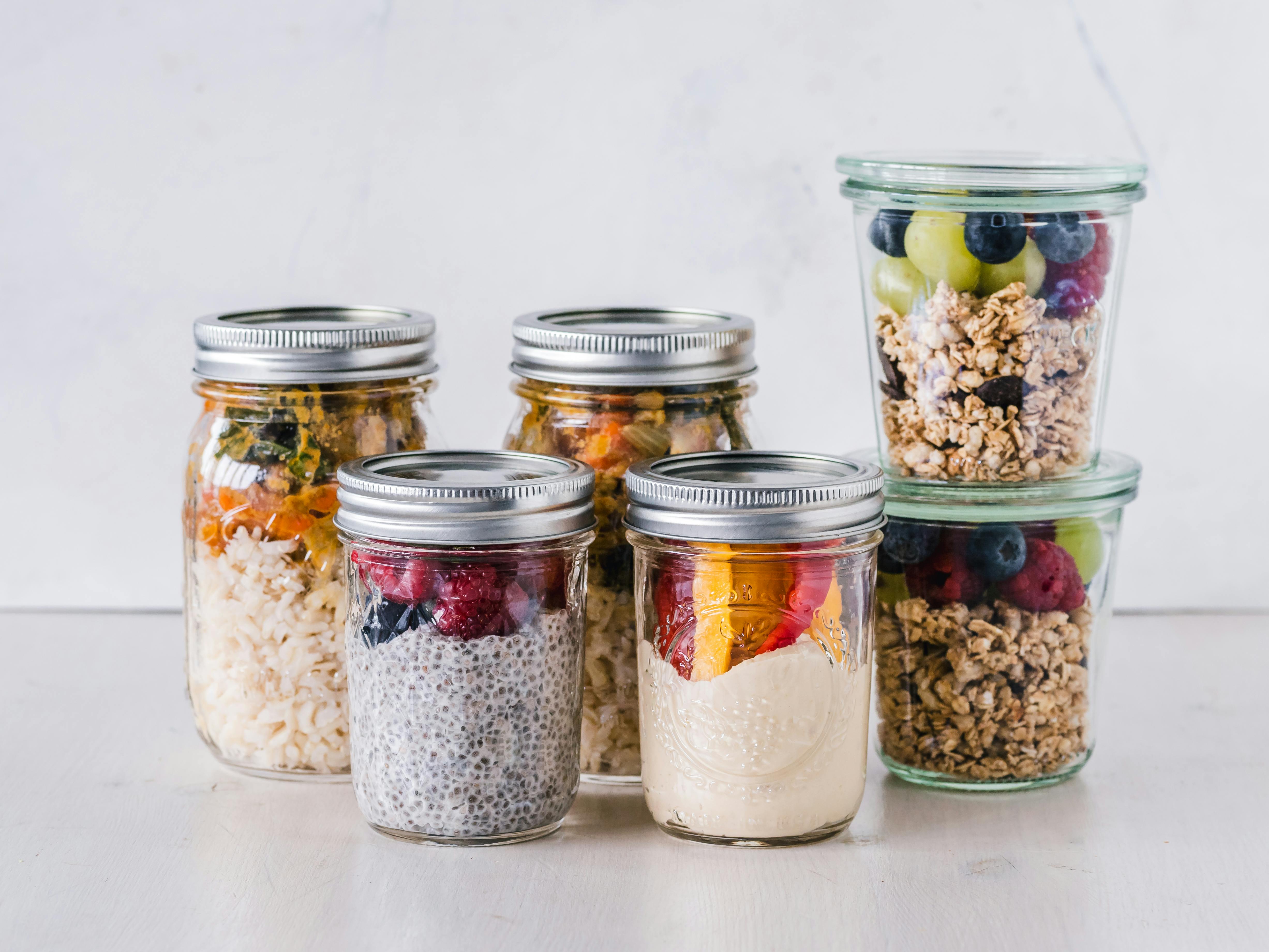Are you in North Carolina and looking for individual therapy or parent counseling?
Visit Flip Consulting and Counseling to schedule a free consultation
Written By Edla Prevette
Why You're Reaching for Ice Cream After Every Doctor's Appointment (And What to Do Instead)
It happens at 7 PM. You've just finished shuttling your teenager to soccer practice and your mom back home from her cardiology appointment. The conversation with the doctor was complicated, your mom seemed confused, and you're pretty sure you forgot to ask three important questions. Now you're standing in front of the open freezer, spoon in hand, eating ice cream straight from the container.
If this scene feels familiar, you're not alone – and you're definitely not broken. According to psychologist Dr. Claudia Perolini, who specializes in helping people transcend emotional eating, what you're experiencing is a completely normal response to the intense, often overwhelming emotions that come with sandwich generation caregiving.
But understanding why it happens – and having healthier strategies in your toolkit – can make all the difference between occasional stress eating and a cycle that leaves you feeling worse than when you started.
The Perfect Storm: Why Caregivers Turn to Food
Sandwich generation caregivers face a unique emotional landscape that makes them particularly vulnerable to using food as a coping mechanism. Dr. Perolini explains: "They have this by the nature of all these responsibilities, especially the caregiving one on top of everything else, they are exposed to these, again, charged, triggering emotions."
Think about it: You already have a full life – spouse, career, children, friends, hobbies, dreams. Then caregiving gets added to the mix, often unexpectedly and requiring more involvement than you anticipated. Suddenly you're dealing with:
The Emotional Overload:
Stress and overwhelm: The constant feeling of being rushed, never having enough time
Sadness and grief: Watching your parent's cognitive or physical decline firsthand
The "unpopular" emotions: Frustration, impatience, anger, resentment – feelings you might feel guilty for having
Sibling dynamics: Wondering why the caregiving burden isn't shared equally
Role confusion: The jarring experience of parenting your parent
The Surprise Factor: "I see that this responsibility of taking care of their elderly parent kind of came to them a little bit as a surprise," Dr. Perolini notes. "Not that they thought they would never have to do this, but it feels... it was sooner than they had expected or the involvement that is required of them is really more than they were thinking."
Understanding Emotional Eating: More Than Just "Comfort Food"
Dr. Perolini defines emotional eating as "when we're relying on food as a way to cope or manage emotional distress – stress, pain, discomfort – as opposed to when we eat to respond to our nutritional needs."
When you reach for that ice cream after a difficult day, you're not actually hungry. You're seeking:
Comfort and stress relief
Distraction from overwhelming emotions
A way to "take the edge off" intense feelings
A momentary sense of control when everything else feels chaotic
And here's the thing – it works. Temporarily.
"Every time that we eat, dopamine is released in our bodies," Dr. Perolini explains. "Dopamine is known as a feeling-good hormone. So there's not only the psychological but physiologically we feel that." This is why the strategy is so compelling and why breaking the cycle can be challenging.
The Vicious Cycle That Keeps You Stuck
Understanding the emotional eating cycle is crucial for breaking free from it:
Trigger: Stressful caregiving situation or overwhelming emotions
Response: Turn to food for comfort and relief
Temporary relief: Feel better for 30 minutes to 2 hours
Crash: Negative emotions about the eating behavior kick in
Double burden: Now you feel shame, regret, anger at yourself – on top of the original stress
Repeat: The additional negative emotions become triggers for more emotional eating
As Dr. Perolini puts it: "It's almost like a double whammy because you're so stressed and feeling guilt and challenging feelings about caring for your parent. And then you eat to make yourself feel better and then 30 minutes, an hour later, then you feel guilty and feel bad because you've just eaten a half gallon of ice cream."

The Hidden Guilt: "I Should Be More Cheerful About This"
One of the most painful aspects Dr. Perolini sees in her practice is caregivers' guilt about not being more positive about their caregiving responsibilities.
"Sometimes it's the guilt that they feel about perhaps not having more of a cheerful attitude all of the time for this responsibility," she explains. "They thought that when the time comes, they would have more space to do this with more cheerfulness, and then realizing... I am a good person. Of course I want to take care of my dad or my mom, but I'm finding it so hard."
This guilt often becomes another trigger for emotional eating. You're not just dealing with the stress of caregiving – you're dealing with feeling bad about not handling it "better."
Here's the truth: Both feelings can coexist. You can love your parent deeply AND find caregiving incredibly difficult. You can be a devoted daughter or son AND feel frustrated, overwhelmed, and sometimes resentful. These contradictory emotions don't make you a bad person – they make you human.
When Emotional Eating Becomes a Problem
It's important to distinguish between occasional stress eating and problematic emotional eating. Dr. Perolini emphasizes: "We all, or most of us, have at some point from time to time used food for that purpose. That's not emotional eating."
Emotional eating becomes concerning when:
It's happening frequently and interfering with your life
You're eating in excess to manage emotions
You feel out of control around food
It's impacting your physical health
You're using food as your primary coping mechanism
The shame and regret cycle is becoming a significant source of additional stress
This same pattern can apply to other substances – like alcohol – where the occasional glass of wine to unwind becomes a bottle, followed by guilt and shame.
The Awareness Revolution: Your First Step to Freedom
Dr. Perolini's primary recommendation might surprise you in its simplicity: notice.
"It's more of an invitation to be as much as you can wanting to notice, wanting to observe, wanting to witness your behavior related to this," she explains.
Here's how to develop awareness:
During the Emotional Eating Episode:
Pause if you can and ask: "How am I feeling right now?"
Notice: "What happened today/this morning/just now?"
Pay attention: "What thought just crossed my mind?"
Be present with the behavior without judgment
Look for Patterns:
Not every trigger applies to every person. You might discover that:
Anger is your primary trigger
Medical appointments are especially difficult
Certain times of day are hardest
Specific family dynamics set you off
Grief about your parent's decline hits you unexpectedly
Important: Do this with curiosity, not judgment. "We want to do this with curiosity, with openness, really trying to understand. We're not trying to judge the behavior at this point."

Practical Strategies: Making Good Habits Easy, Bad Habits Hard
Dr. Perolini draws from James Clear's "Atomic Habits" to offer two powerful strategies:
Strategy 1: Make Good Habits Easy
Instead of trying to make healthy choices when you're emotionally dysregulated, prepare when you're in a clear headspace.
The Pre-Planning Approach:
When you know a stressful week is coming (multiple doctor's appointments, family events), plan ahead
Prepare grab-and-go foods that are:
Relatively aligned with how you want to eat
Something you actually enjoy (not punishment food)
Readily available when you need comfort
Stock your fridge with options so you're not making decisions while emotionally activated
Examples might include:
Pre-made smoothie packs you can blend quickly
Cut vegetables with a dip you love
Homemade energy balls or muffins
High-quality, portion-controlled versions of comfort foods
Satisfying soups or stews you can heat up
The key is that these foods need to feel somewhat indulgent while still nourishing your body.
Strategy 2: Make Bad Habits Hard
Create barriers between yourself and the behaviors you want to avoid.
Environmental changes:
Don't keep trigger foods easily accessible at home
Change your route if you tend to stop for emotional eating on the way home
Rearrange your kitchen so healthier options are most visible
The Strategic Planning Example: Dr. Perolini shares a client's approach: "She knew the doctor appointment was especially hard... So what she would do was to say, 'Okay, so I know the doctor is in the morning. At 1 PM, I'm going to have a plan.' She already had a date with someone, with a friend, to go for a walk, so she wasn't going to go straight home with all her emotions and all the food in her home."
Alternative planning:
Schedule a nail appointment after difficult medical appointments
Plan to meet a friend for coffee
Book a dentist appointment (tasks that need doing anyway)
Go for a walk in a park
Visit a bookstore or library
Do grocery shopping (away from home, with a list)
The Abundance Mindset: What You CAN Have
One of the most important shifts Dr. Perolini recommends is moving from restriction to possibility.
"The emphasis, if we emphasize restriction... the more that we emphasize restriction for most of us, there's pressure that over time leads to us going overboard at some point," she explains.
Instead of focusing on what you can't eat, ask:
"What satisfying meal can I prepare that aligns with how I want to feel?"
"What foods give me comfort AND energy?"
"How can I create a eating experience that feels nurturing?"
This might mean:
A beautiful bowl of pasta with vegetables and a glass of sparkling water
A warm soup with crusty bread and herbal tea
Dark chocolate paired with fresh berries
A smoothie bowl with toppings that feel special
The goal is foods that provide genuine nourishment and satisfaction, not deprivation followed by rebellion.

Beyond Food: Alternative Coping Strategies
While changing your relationship with food is important, developing additional coping tools is equally crucial:
Immediate Stress Relief:
Take 10 deep breaths before entering the house after a difficult appointment
Call a friend while walking around the block
Listen to a specific playlist that helps regulate your emotions
Do 5 minutes of stretching or gentle movement
Longer-term Emotional Processing:
Journal about your caregiving experiences
Join a support group for sandwich generation caregivers
Work with a therapist who understands caregiver stress
Practice regular self-care that isn't food-related
The Self-Compassion Foundation
Perhaps most importantly, Dr. Perolini emphasizes approaching yourself with kindness throughout this process.
"Both can coexist," she says about loving your parent while finding caregiving difficult. "It doesn't make you at all less of a good caregiver for your parent."
Remember:
Emotional eating developed as a coping strategy for good reasons
Changing patterns takes time and patience
Setbacks are part of the process, not failures
You're doing something incredibly difficult while managing a full life
Your worth isn't determined by your eating behaviors
When to Seek Additional Support
Consider working with a mental health professional if:
Emotional eating is significantly impacting your life
You're experiencing symptoms of depression or anxiety
You feel out of control around food most of the time
Caregiver stress is affecting multiple areas of your life
You're isolating yourself due to shame about your eating
Dr. Perolini offers a free workbook designed to help people understand the role food plays in their lives through gentle self-reflection prompts spread across five days.
Moving Forward: Small Steps, Big Changes
Transforming your relationship with emotional eating while managing sandwich generation responsibilities isn't about perfection – it's about progress.
Start with one small change:
Notice your emotional eating patterns for one week without trying to change them
Prepare one comforting, nourishing meal for the week ahead
Plan one post-appointment activity that takes you somewhere other than straight home
Practice self-compassion when you do emotionally eat
Remember: You're not just caring for others – you deserve to be cared for too, including by yourself. Learning to nourish your body and emotions in healthy ways isn't selfish; it's an essential part of sustainable caregiving.
The ice cream will always be there if you need it. But with awareness, preparation, and self-compassion, you might find you need it less often than you think.
Struggling with emotional eating while managing the stress of sandwich generation caregiving? You deserve support that addresses not just the practical challenges of caring for aging parents, but also the emotional toll it takes on your relationship with food and self-care.
Schedule your complimentary caregiving consultation with Edla Prevette today and discover strategies to manage caregiver stress, develop healthy coping mechanisms, and create sustainable support systems for your whole family.
Learn More About Today's Guest Expert
Dr. Claudia Perolini has a PhD in Counseling Psychology and has been helping people manage their emotions for over 13 years. She works as a therapist specializing in depression, anxiety, overwhelm, loss and grief, and relationship issues. As a coach, she helps people transcend emotional eating by deepening their insight and expanding their awareness so they can shift their relationship with food for good. You can find her resources and support at: https://claudiaperolini.com
Edla Prevette specializes in helping sandwich generation caregivers develop effective communication strategies and reduce stress while caring for aging parents. With thirty years of experience as an educator and therapist, she understands that sustainable caregiving requires addressing not just practical challenges, but also the emotional and physical toll of caring for multiple generations. Learn more at edlaprevette.com.

2024 Edla Prevette | www.edlaprevette.com | Privacy Policy | Terms and Conditions | Affiliate Disclosure
